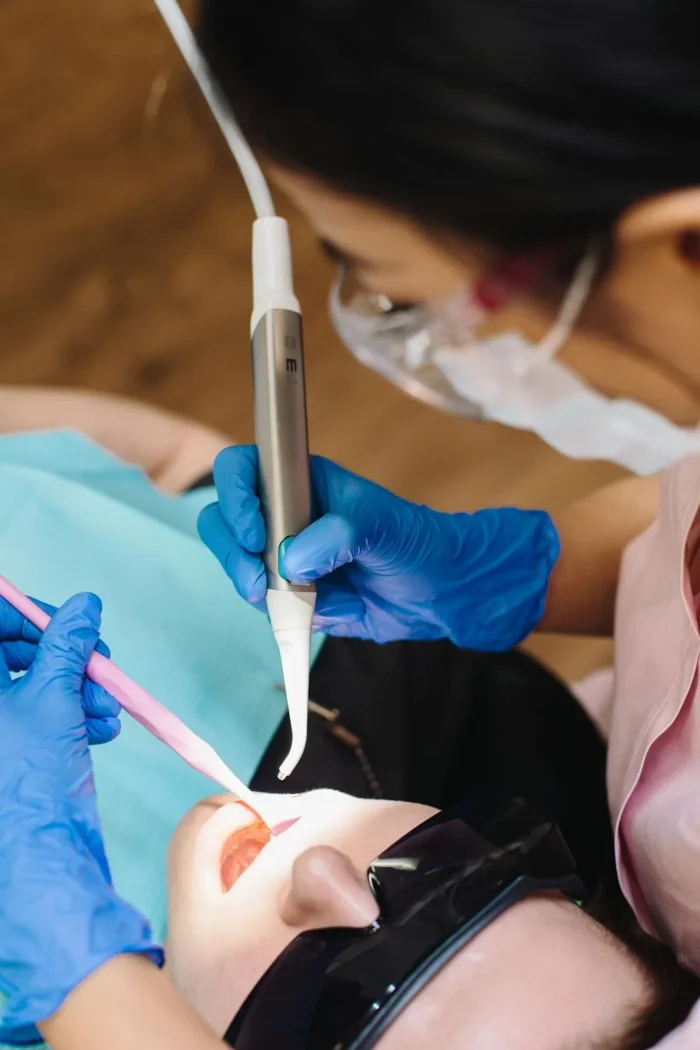Consider how the A-Level subjects and entry requirements will prepare you for the challenges of a Dentistry degree. How can StudySmarter help you choose the best A Levels for Dentistry post-GCSE Results Day? Not only are we an all-in-one learning app that offers 100% free explanations, flashcards, and AI-powered mock exams for everyone to use, we also offer advise on A-Level selection, University life and careers!
What A Levels Are Needed for Dentistry?
When planning for a degree in Dentistry at a UK university, selecting the right A-level subjects is crucial. Dentistry is a science-intensive field, and universities typically require students to have a strong background in relevant subjects. Below is a table categorizing A-level subjects into required, recommended, and useful categories for a degree in Dentistry.
| Category | Subjects |
| Required Subjects | – Chemistry: Essential for understanding the chemical processes, materials, and drug interactions in dental treatments. |
| – Biology: Crucial for understanding human anatomy, physiology, and oral health, which are the foundation of dental science. | |
| Recommended Subjects | – Mathematics: Develops analytical skills, logical thinking, and precision, which are valuable in dentistry. |
| – Physics: Useful for understanding concepts related to dental equipment, radiology, and the physical properties of dental materials. | |
| Useful (Not Necessary) | – Psychology: Helps in understanding patient behavior, communication, and managing patient anxiety, which are important in patient care. |
| – Further Mathematics: Offers deeper mathematical understanding, beneficial for students interested in highly technical aspects of dentistry. | |
| – Art and Design: Useful for developing manual dexterity and an eye for detail, which are important in restorative dentistry and prosthetics. | |
| – English Language: Enhances communication skills, essential for writing reports, patient communication, and professional interactions. | |
| – Business Studies: Provides knowledge in business management, useful for those who aspire to manage or own a dental practice. |
Detailed Explanation
Required Subjects
- Chemistry:
- Understanding Chemical Processes: Chemistry is essential for understanding the composition and properties of materials used in dental treatments, such as fillings and prosthetics. It also covers the interaction of drugs and anesthetics with the body, which is critical in dental care.
- University Requirement: Almost all dental schools in the UK require Chemistry at A-level, as it provides the necessary foundation for the science-based curriculum of a Dentistry degree.
- Biology:
- Foundation in Human Biology: Biology provides a deep understanding of human anatomy, physiology, and microbiology, which are fundamental to dental studies. Topics such as oral health, disease processes, and the structure and function of teeth are covered extensively in Biology.
- University Requirement: Like Chemistry, Biology is typically required by UK dental schools because it underpins much of the clinical knowledge and practice in Dentistry.
Recommended Subjects
- Mathematics:
- Developing Analytical Skills: Mathematics helps in developing logical thinking, problem-solving abilities, and precision, all of which are valuable in Dentistry. Whether it’s calculating dosages or understanding the mechanics of dental equipment, mathematical skills are beneficial.
- Enhancing Application: While not always required, Mathematics is highly recommended as it strengthens your overall application and prepares you for the quantitative aspects of a Dentistry degree.
- Physics:
- Understanding Dental Technology: Physics is useful for understanding how dental equipment works, the principles of radiology, and the physical properties of materials used in dental treatments.
- Recommended for Technical Understanding: Although not always mandatory, Physics is recommended because it complements the technical aspects of Dentistry, particularly in areas like radiography and materials science.
Useful (Not Necessary) Subjects
- Psychology:
- Understanding Patient Behavior: Psychology helps in understanding how to manage patient anxiety, communicate effectively, and provide compassionate care, which are all important in patient interactions in Dentistry.
- Further Mathematics:
- Advanced Mathematical Skills: Further Mathematics offers a deeper understanding of mathematical concepts, which can be beneficial for students interested in the more technical and research-based aspects of Dentistry.
- Art and Design:
- Developing Manual Dexterity: Dentistry requires excellent manual dexterity and attention to detail, particularly in areas like restorative work and prosthetics. Art and Design can help develop these skills, making it a useful subject for students interested in these aspects of Dentistry.
- English Language:
- Enhancing Communication: Strong communication skills are essential in Dentistry, whether for writing patient reports, discussing treatment options with patients, or working within a healthcare team. English Language helps in developing these skills.
- Business Studies:
- Understanding Practice Management: For those who aspire to manage or own a dental practice, Business Studies provides valuable knowledge in business management, finance, and entrepreneurship, which are crucial for running a successful practice.
What Grades Are Needed for Dentistry at the Top 5 Universities in UK?
To study Dentistry at a top UK university, achieving high A-level grades is crucial. Below is a detailed explanation of the typical grade requirements and subject preferences for dentistry degrees at the top 5 universities in the UK.
Top 5 Universities for Dentistry in the UK
| University | Typical A-Level Grades | Specific Subject Requirements | Additional Requirements |
| King’s College London (KCL) | A*AA | Required: Chemistry and Biology. | UCAT required; strong personal statement and reference. Relevant work experience is highly valued. |
| University of Glasgow | AAA | Required: Chemistry and Biology. | UCAT required; personal statement should reflect commitment to dentistry, with relevant work experience recommended. |
| University of Manchester | AAA | Required: Chemistry and Biology. | UCAT required; a strong personal statement and evidence of work experience in a dental setting are important. |
| University of Birmingham | A*AA | Required: Chemistry and Biology. | UCAT required; work experience in a dental setting is highly recommended. |
| University of Bristol | AAA | Required: Chemistry and one other science subject, typically Biology. | UCAT required; personal statement should include details of relevant work experience. |
Detailed Breakdown
- King’s College London (KCL):
- Grades: A*AA is typically required.
- Subjects: Chemistry and Biology are mandatory. These subjects provide the necessary scientific foundation for understanding dental medicine, human biology, and the materials used in dentistry.
- Additional Requirements: Applicants must take the UCAT (University Clinical Aptitude Test). A strong personal statement highlighting your commitment to dentistry and relevant work experience is essential.
- University of Glasgow:
- Grades: AAA is typically required.
- Subjects: Chemistry and Biology are required. These subjects are crucial for understanding the fundamental sciences behind dental practice and patient care.
- Additional Requirements: UCAT is required, and your personal statement should reflect a genuine interest in dentistry, supported by relevant work experience.
- University of Manchester:
- Grades: AAA is typically required.
- Subjects: Chemistry and Biology are required. These subjects are important for building the foundational knowledge needed for the rigorous study of dentistry.
- Additional Requirements: Applicants must take the UCAT. A strong personal statement and evidence of work experience in a dental setting are key components of a successful application.
- University of Birmingham:
- Grades: A*AA is typically required.
- Subjects: Chemistry and Biology are required. These subjects ensure that students have the necessary background in the sciences that underpin dental education.
- Additional Requirements: The UCAT is required, and relevant work experience in a dental setting is highly recommended to demonstrate commitment and understanding of the profession.
- University of Bristol:
- Grades: AAA is typically required.
- Subjects: Chemistry and another science subject, usually Biology, are required. This combination ensures a strong grounding in both the chemical and biological sciences necessary for dentistry.
- Additional Requirements: The UCAT is required, and a personal statement that includes relevant work experience is important for showing your dedication to the field.
Why These Subjects Matter
- Chemistry: Chemistry is essential for understanding the properties of dental materials, the interaction of drugs and treatments with the body, and the biochemical processes involved in oral health. It is a core requirement for almost all dental schools.
- Biology: Biology is crucial for understanding human anatomy, physiology, and the various biological processes that are central to dental care. This subject provides the necessary background in human health and disease, which is fundamental to all aspects of dental practice.
- Mathematics/Physics (Recommended): These subjects develop analytical and problem-solving skills, which are important in areas like dental radiology, orthodontics, and the technical aspects of dental procedures.
Why are the Required A Levels for Dentistry Important?
The required A-level subjects for a degree in Dentistry—Chemistry and Biology—are crucial because they provide the foundational knowledge and skills necessary for success in dental studies and practice. Here’s why these subjects matter:
1. Chemistry
- Understanding Materials and Treatments: Chemistry is essential for understanding the composition, properties, and interactions of materials used in dentistry. This includes everything from dental fillings and crowns to the drugs and anesthetics used in procedures. A deep understanding of chemistry allows dentists to make informed decisions about the most appropriate materials and treatments for their patients.
- Biochemical Processes: Dentistry isn’t just about teeth; it’s also about understanding how various chemical processes affect oral health. For example, the role of acids in tooth decay or the interaction of medications with the body’s chemistry are critical areas where chemistry plays a key role. Understanding these processes helps in diagnosing and treating a wide range of dental conditions.
2. Biology
- Human Anatomy and Physiology: Biology is crucial for understanding the structure and function of the human body, particularly the mouth, teeth, gums, and related systems. Knowledge of human anatomy and physiology is foundational for any dental professional, as it helps them understand the normal functioning of the oral cavity and identify abnormalities or diseases.
- Oral Health and Disease: Biology provides the necessary background to understand how diseases affect oral health, how the body’s systems interact, and how various conditions manifest in the mouth. For instance, understanding the biology of bacteria and their role in plaque formation is essential for preventing and treating dental caries (tooth decay).
- Microbiology and Immunology: Dentistry also requires knowledge of microbiology and immunology, which are covered in Biology. Understanding the immune system’s response to infections and the role of microorganisms in oral diseases is crucial for effective treatment and prevention strategies.
Why These Subjects Matter
- Chemistry provides the scientific framework for understanding the materials used in dental care. Without a strong grasp of chemistry, it would be challenging to understand how different substances work in the body, how to safely use anesthetics, or how to create effective treatment plans involving chemical compounds.
- Biology is critical because it offers a comprehensive understanding of the human body, particularly the oral and maxillofacial regions. This knowledge is essential for diagnosing conditions, planning treatments, and performing procedures that ensure patient health and safety. Biology also covers essential topics like genetics, cell biology, and microbiology, all of which have direct applications in dental practice.
Application to Dentistry
- Diagnosis and Treatment: Understanding how various chemical and biological processes affect oral health allows dentists to accurately diagnose and treat conditions. For example, knowledge of how bacteria contribute to tooth decay (a biological process) and how fluoride works to strengthen enamel (a chemical process) is fundamental to effective dental care.
- Preventative Care: Dentists play a key role in preventing oral health problems. A solid foundation in Chemistry and Biology helps them understand the underlying causes of these problems and how to prevent them through proper dental care, diet, and lifestyle choices.
- Complex Procedures: For more advanced dental procedures, such as oral surgery or the application of dental prosthetics, understanding the chemical and biological interactions in the body is crucial. This ensures that procedures are both safe and effective, reducing the risk of complications and improving patient outcomes.

StudySmarter Revision Guide
StudySmarter is the all-in-one-app for you. Our team of verified experts have carefully curated explanations and flashcards in many A-Level subjects to ensure everyone benefits and succeeds in their learning and exam goals!
Here’s a table of A-level subjects that are important or beneficial for pursuing a degree in Dentistry at UK universities.
| A-Level Subject | Why It’s Important for Dentistry | StudySmarter Link |
| Chemistry | Essential for understanding dental materials, drug interactions, and biochemical processes. | Chemistry |
| Biology | Crucial for understanding human anatomy, oral health, microbiology, and disease processes. | Biology |
| Mathematics (Recommended) | Develops analytical and problem-solving skills, useful in diagnostic and technical aspects of dentistry. | Mathematics |
| Physics (Recommended) | Useful for understanding dental radiology, equipment, and the physical properties of dental materials. | Physics |
| Psychology (Useful) | Helps in understanding patient behavior, communication, and managing patient anxiety. | Psychology |
| Further Mathematics (Useful) | Offers deeper mathematical understanding, beneficial for technical and research-based aspects of dentistry. | Further Mathematics |
| Art and Design (Useful) | Develops manual dexterity and an eye for detail, important in restorative dentistry and prosthetics. | Art and Design |
| English Language (Useful) | Enhances communication skills, essential for patient interaction and professional communication. | English Language |
| Business Studies (Useful) | Provides knowledge in business management, useful for managing or owning a dental practice. | Business Studies |
Top Tips for Choosing A Levels for Dentistry
Choosing the right A-levels for Dentistry is a crucial decision, especially if you’re aiming for a degree in Dentistry. Here’s some advice to help you make the best choices:
Reasons to Choose A-Level Subjects That Fit the Entry Requirements for a Dentistry Degree:
- Meeting University Requirements:
- Essential Science Subjects: Dentistry programs typically require A-levels in Chemistry and Biology. These subjects provide the foundational knowledge of biological processes and chemical interactions that are crucial for understanding dental medicine.
- Strong Foundation in Science: Chemistry is essential for understanding the properties of materials used in dentistry and the biochemical processes in the body, while Biology is crucial for understanding human anatomy, oral health, and disease processes. Mathematics or Physics are often recommended as they develop analytical and problem-solving skills needed in dentistry.
- Developing Core Skills:
- Scientific Understanding: Dentistry is a science-based profession, and having a background in Chemistry and Biology ensures that you have the necessary knowledge to understand the medical and clinical aspects of dental care.
- Precision and Analytical Skills: Subjects like Mathematics and Physics help develop precise analytical thinking, which is vital for diagnosing and treating dental conditions.
- Preparation for Further Study and Specialization:
- Specialized Knowledge: A-level subjects like Chemistry and Biology prepare you for more advanced studies in dental science, including understanding pharmacology, pathology, and the development of new dental technologies.
Reasons You Might Not Choose A-Level Subjects That Fit the Entry Requirements for a Dentistry Degree:
- Personal Interest and Strengths:
- Lack of Interest in Science: If you are not interested in or struggle with science subjects like Chemistry and Biology, you might find the rigorous nature of a Dentistry degree challenging. It’s important to choose subjects that align with your interests and strengths to ensure success in your studies.
- Alternative Career Paths: If you’re not fully committed to a career in Dentistry and are considering other options, you might prefer to choose A-levels that keep your options open for non-science careers, such as in business, humanities, or the arts.
- Exploring Other Fields:
- Interest in Non-Clinical Roles: If you’re interested in healthcare but not necessarily in direct patient care, you might choose subjects that align more with roles like healthcare management, public health, or medical research. Subjects like Business Studies or Economics could be more relevant in this case.
- Uncertainty About Career Goals: If you’re unsure about pursuing a career in Dentistry, selecting a broader range of subjects that provide flexibility for other degree choices might be a safer option. This way, you’re not locking yourself into a specific career path too early.
Top 10 Jobs You Could Do with Selected A-Levels and a Degree in Dentistry
| Job Title | Description |
| General Dentist | Provides routine dental care, including exams, cleanings, fillings, and preventative care. |
| Orthodontist | Specializes in diagnosing, preventing, and treating dental and facial irregularities, often using braces or aligners. |
| Oral and Maxillofacial Surgeon | Performs surgical procedures on the mouth, jaws, and face, including complex tooth extractions, jaw realignment, and facial reconstruction. |
| Periodontist | Focuses on the prevention, diagnosis, and treatment of gum diseases and the placement of dental implants. |
| Pediatric Dentist | Specializes in dental care for children, addressing the unique dental needs of infants through adolescents. |
| Prosthodontist | Specializes in restoring and replacing teeth, focusing on dental prosthetics like crowns, bridges, and dentures. |
| Endodontist | Specializes in treating the dental pulp and performing root canal therapy to save teeth. |
| Dental Researcher | Conducts research to advance dental practices, materials, and technologies. |
| Dental Public Health Specialist | Works on improving community dental health through education, policy development, and disease prevention programs. |
| Academic/Clinical Lecturer in Dentistry | Teaches dental students and conducts research in dental schools, contributing to the education of future dentists. |
Conclusion: Choose StudySmarter for Your A-Level Journey
When selecting your A-level subjects, align your choices with your interests, strengths, and career goals. If you’re committed to pursuing a degree in Dentistry, choosing Chemistry, Biology, and Mathematics or Physics will provide a strong foundation and meet the entry requirements of most dental programs. These subjects equip you with the necessary knowledge and skills for the scientific and clinical aspects of dentistry. However, if you have different interests or are considering other career paths, it might help to choose A-levels that offer broader flexibility, allowing you to explore other options. Ultimately, your A-level choices should reflect your long-term aspirations, ensuring that you’re well-prepared for your chosen career path while also keeping doors open for alternative opportunities.
How we ensure our content is accurate and trustworthy?
At StudySmarter, we have created a learning platform that serves millions of students. Meet the people who work hard to deliver fact based content as well as making sure it is verified.

Gabriel Freitas is an AI Engineer with a solid experience in software development, machine learning algorithms, and generative AI, including large language models’ (LLMs) applications. Graduated in Electrical Engineering at the University of São Paulo, he is currently pursuing an MSc in Computer Engineering at the University of Campinas, specializing in machine learning topics. Gabriel has a strong background in software engineering and has worked on projects involving computer vision, embedded AI, and LLM applications.
Get to know Gabriel




